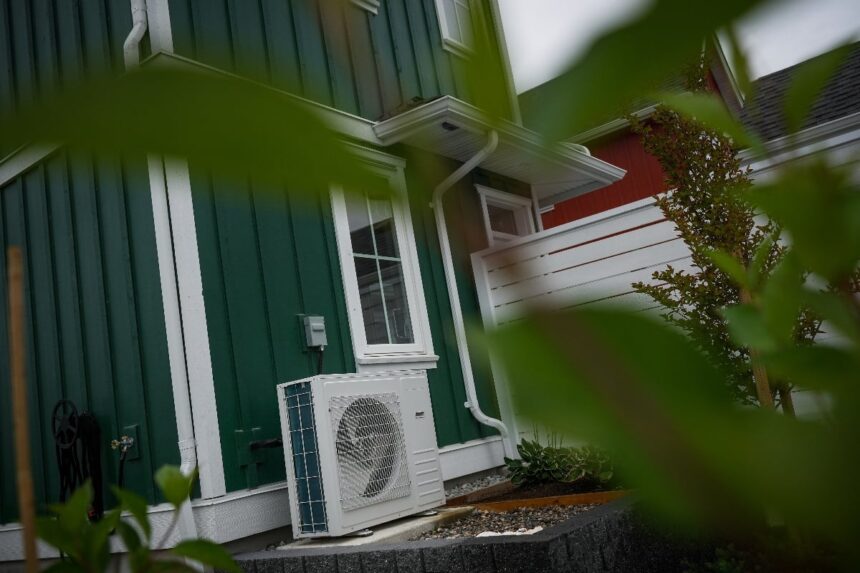In a move that has sent shockwaves through Canada’s green energy sector, the federal government abruptly announced the termination of the Greener Homes Loan Program last week, leaving thousands of homeowners and energy advisers in limbo. The program, which provided interest-free loans of up to $40,000 for energy-efficient home renovations, was shut down with minimal notice, creating what industry insiders are calling a “devastating blow” to Canada’s residential climate action efforts.
“We were blindsided completely,” says Marion Thibault, a certified energy adviser from Vancouver who learned about the cancellation through social media. “One day we’re helping homeowners plan major efficiency upgrades, and the next we’re calling them to explain their financing has disappeared.”
The Canada Greener Homes Loan program, launched in 2022, had become a cornerstone of the government’s residential climate strategy, facilitating over 18,000 approved projects nationwide with more than $175 million in funding dispersed. Energy advisers across the country report that thousands more applications were in various stages of processing when the announcement came.
According to Canada News, the program’s termination arrives at a particularly challenging moment, as Canadians face rising energy costs and increasing pressure to reduce household carbon emissions. Statistics Canada data indicates that residential buildings account for approximately 17% of the country’s greenhouse gas emissions, making home efficiency upgrades a critical component of Canada’s climate commitments.
“This program was producing real results,” explains Dr. Thomas Chen, environmental economist at the University of Toronto. “We were seeing significant emissions reductions from completed projects, while creating jobs in the green renovation sector. The economic multiplier effect of these investments was substantial.”
The Canada Mortgage and Housing Corporation (CMHC), which administered the program, cited “unprecedented demand” as the reason for the closure, noting that application volumes had exceeded available funding. However, energy advisers and industry representatives question why the program wasn’t simply paused for restructuring rather than completely terminated.
“If demand is the problem, that’s actually a sign of success, not failure,” argues Jessica Moulton, executive director of Efficiency Canada. “The appropriate response would be to expand the program, not cancel it entirely, especially with no clear replacement strategy.”
For homeowners caught mid-application, the situation is particularly frustrating. The CO24 Business desk has received dozens of messages from Canadians who had scheduled contractors and made financial commitments based on the expected loans.
“We’ve already completed our energy assessment and signed contracts for new windows and insulation,” says Michael Desjardins, a homeowner in Halifax. “Now we’re scrambling to figure out if we can even afford to proceed. The bank isn’t offering anything close to the zero-interest terms the government program provided.”
Energy advisers—professionals certified to conduct home energy assessments—are reporting significant business impacts. Many expanded their operations specifically to meet the demand generated by the program and now face potential layoffs or business closures.
The decision also raises questions about Canada’s climate policy direction, according to CO24 Politics analysts. The cancellation comes just months after the government reaffirmed its commitment to reducing emissions by 40-45% below 2005 levels by 2030, a target that experts say will be more difficult to achieve without strong residential efficiency incentives.
“This represents a troubling pattern of start-stop climate policy that creates uncertainty in the market,” notes environmental policy expert Dr. Sarah Richardson. “For climate initiatives to succeed, they need stability and predictability. Businesses and homeowners make long-term decisions based on these programs.”
Industry groups are calling for an immediate replacement program, ideally with expanded funding to meet the demonstrated demand. Meanwhile, provincial utilities and private lenders are reporting increased inquiries about alternative financing options for green home upgrades.
As Canada approaches another winter heating season with energy prices projected to rise further, the timing of the program’s cancellation raises critical questions: Will the federal government introduce a replacement initiative before momentum in residential efficiency improvements is lost? And more fundamentally, how committed is Canada to supporting individual homeowners in the transition to a lower-carbon economy?























